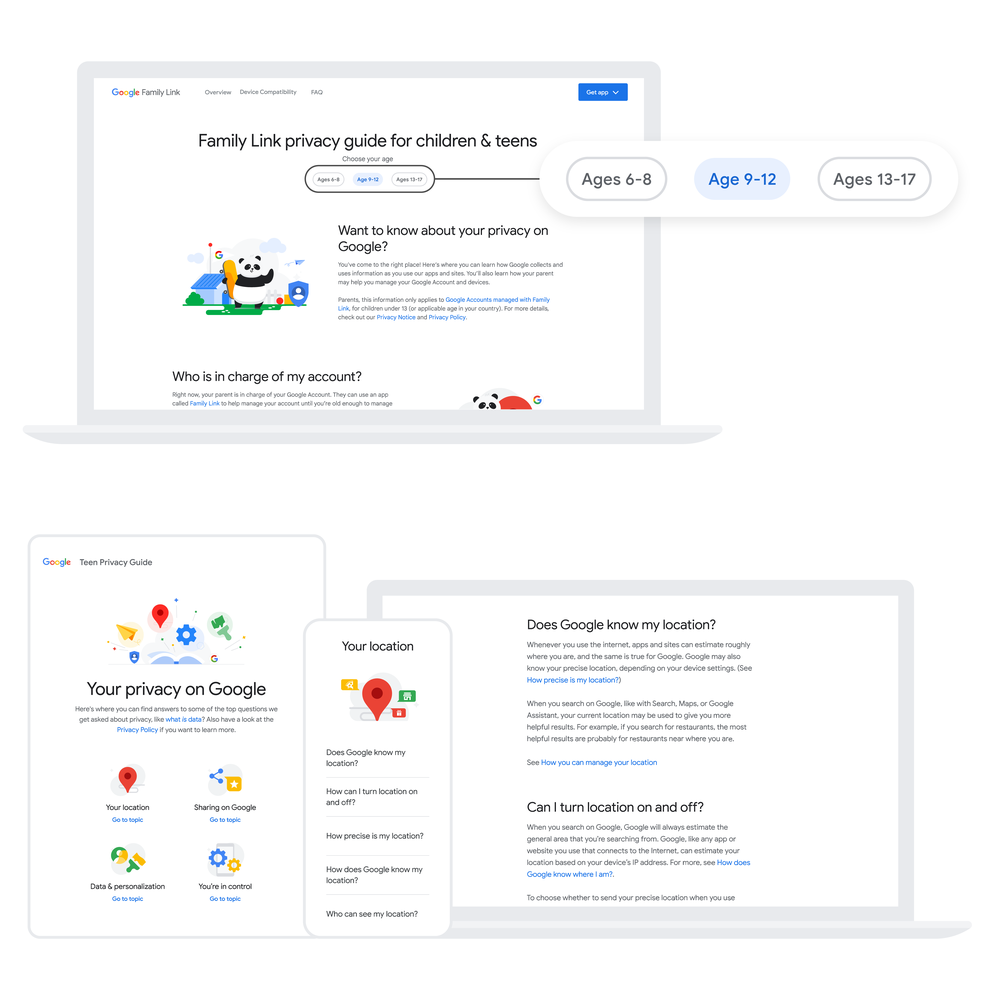Between virtual schooling, social media, and video streaming platforms, kids are more online than ever. Though children are growing up using the internet from their earliest ages, however, most evidence suggests they are more at risk for being targeted through advertising and other forms of online marketing. Now, Google is taking action to protect them.
In one recent study from SafeAtLast, upwards of 75% of children are willing to share personal information in exchange for goods or services. This obviously raises concerns about the long-term implications of gathering data from and targeting ads towards children.
As a result, Google is changing its policies regarding minors online, including removing ad targeting for those under 18 and allowing underage individuals to request for any images of them to be removed from search results.
These are all the latest changes:
Allowing Minors To Remove Images From Google Search
“Children are at particular risk when it comes to controlling their imagery on the internet. In the coming weeks, we’ll introduce a new policy that enables anyone under the age of 18, or their parent or guardian, to request the removal of their images from Google Image results,” explains Mindy Brooks, product and UX director for kids and families at Google.
The search engine is unable to go further in removing the images from the internet entirely, but it can certainly make it more difficult to find those images.
Changing Default Settings For Minors

Google is making underage users’ information more private by default across its multiple platforms. That includes changing the default upload mode on YouTube to private for users under 18 and automatically enabling SafeSearch for minors on Google Search.
Location History Is Disabled
By default, Google had already turned off location history for users between 13 and 17. Now, it has gone further by making it entirely disabled. On one hand, this may lead to less relevant search results, but also prevents excessive tracking of children through Google.
Removing Ad Targeting For Minors
In the upcoming months, Google Ads says it will be “expanding safeguards to prevent age-sensitive ad categories from being shown to teens, and we will block ad targeting based on the age, gender, or interests of people under 18.”
New Tools For Parents
Lastly, the company is introducing a number of new tools and features for parents across its entire product line. For example, the company is introducing Digital Wellbeing tools within the Google Home app, allowing parents to manage their children’s use of smart assistants. On YouTube, the company is also turning on ‘take a break’ and bedtime reminders by default, while turning off autoplay.
For more on Google’s latest efforts to protect the private data of children across its services and platforms, check out the full blog post here.



